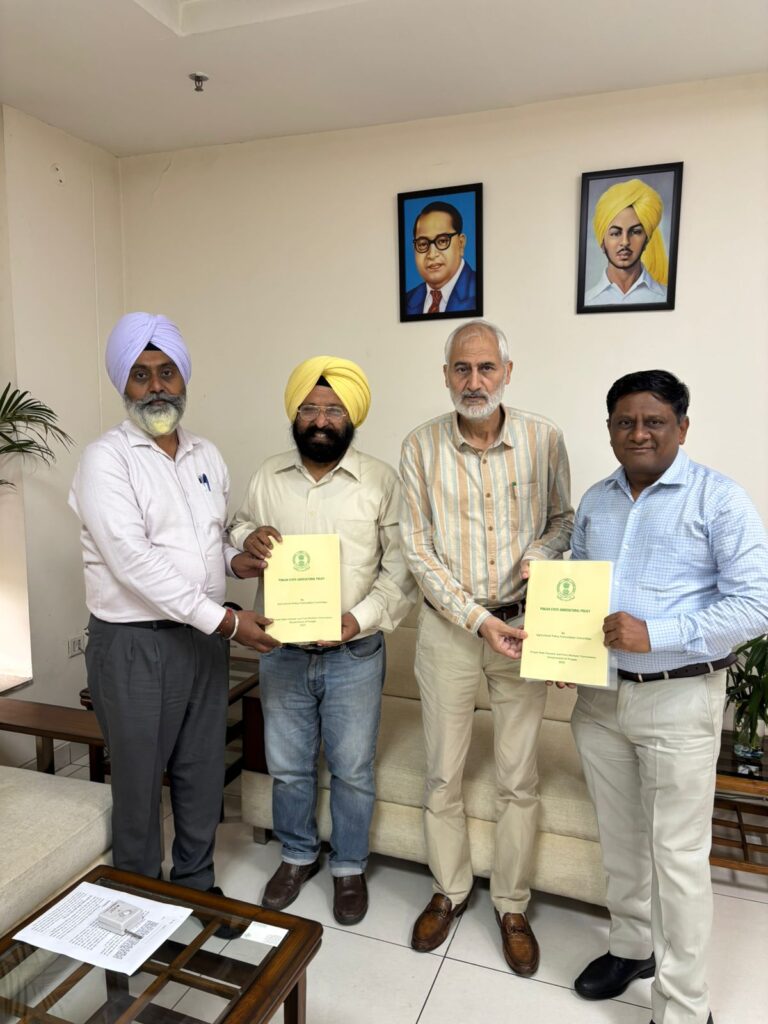The Fact News Service
Chandigarh, July 6
The Punjab State Farmers and Agricultural Workers Commission’s Chairman Prof. Dr. Sukhpal Singh held detailed discussions to accelerate export of pesticide-residue-free basmati from Punjab to further give a big push to crop diversification.
Stressing that crop diversification should be implemented a efficaciously in active participation of all stakeholders, the Chairman Prof. Dr. Sukhpal Singh pointed out that at least 10 lakh hectares of area could be taken out of paddy cycle. The discussions were held to formulate strategic interventions and identify the bottlenecks involved in the export of Basmati from Punjab to the European Union and the United States of America. It was also highlighted that the excess of pesticide residues was a major hinder in export.
The other participant in the discussions were included Dr. Sandiprao Patil, North India Zonal Manager, Dr. Malvinder Singh Malhi, Global Trainer, Byer Crop Science and Dr. R.S. Bains, Manavpreet Singh R.O. and Gagandeep R.A. Dr. Rao also raised tge concern before the Chairman that the Department of Agriculture and Farmers Welfare had already banned 11 pesticides which was being implemented from August 1 to September 30 terming it a welcome step. He said that some pesticides were being used for paddy crop globally with no residue problem for export in the said countries. He stressed that the Kharif maize crop is a viable alternative of paddy consuming less water than paddy.
The Chairman pointed out that the Kharif Maize Hybrid would yield atleast 35 quintals per acre, which is highly beneficial for farmers. Dr. Rao said that Bayer is working extensively on this to meet the increasing demand in view of the permissions to blend ethanol with petrol and soon the hybrid varieties could be offered for large-scale adoption by the farmers of Punjab state which could reduce considerable area from paddy crop.
Dr. Ranjodh Singh Bains, Admin Officer-cum-Secretary, Punjab State Farmers and Agricultural Workers Commission, revealed that choosing less water guzzling crops is need of the hour to sustain our natural resources as well as to secure the farmers’ profits at least equal to the profits from paddy crop.













